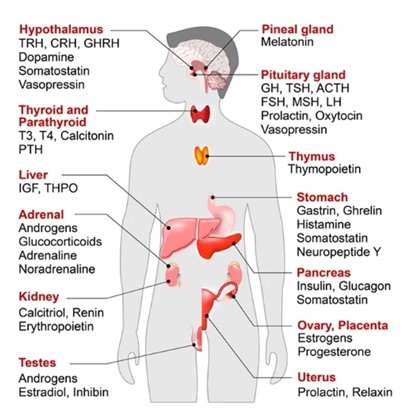This post highlights the social issues in Pakistan. Pakistan is a developing country where there are many social issues that must be solved for a better Pakistan. Such issues are growing due to the non-implementation of the rule of law and lack of education as well. Similarly, the High rate of illiteracy, low awareness, and lack of justice in society are the key reasons for social problems in Pakistan.
Corruption
Corruption is one of the major social issues in Pakistan for many years. The country ranks 140 out of 180 countries on the 2021 Corruption Perception Index, with a score of 28 out of 100. This means that corruption is perceived to be very uncontrolled in the country. There are various factors that contribute to corruption in Pakistan. One is the lack of accountability and transparency in the government. There is also a lack of rule of law, which allows corrupt officials to get away with their crimes. Moreover, there is a culture of favoritism, which further promotes corruption.
Nepotism
Nepotism is a form of favoritism based on family relationships. In Pakistan, nepotism is a widespread issue in both the public and private sectors. There are many examples of nepotism in Pakistan. For instance, political leaders often appoint their relatives to important positions in the government. This practice results in less qualified individuals getting jobs that they are not suited for. Additionally, nepotism creates an environment of cronyism and corruption. The issue of nepotism is complex, but it is detrimental to Pakistani society.
Social conciousness
The status-conscious issue in Pakistan is a complex one. People always try to acquire the latest gadgets and clothes and show them off to others. They spend a lot of money to show off on different occasions such as marriage ceremonies. Similarly, people spend more money on their status and not on their needs. For instance, they try to buy a heavy vehicle even on loan just to show off. Even, the education of the children has become a status symbol. They try to get admission for their children to schools with high tuition fees. People want to become rich even by using unfair means. People respect the people who are rich and do not consider the way he has earned the money. The status culture is bad because it ruins society. Therefore, it is important for everyone, to discourage the culture to show off.
Brain drain
The brain drain is also one of the major social issues in Pakistan. Each year, in search of a quality life and better opportunities, thousands of youngsters leave the country. This has a negative impact on the country’s economy and development.
The outflow of skilled workers reduces the available human capital in Pakistan. It also limits the country’s ability to compete in the global marketplace. The loss of these workers also means that there are fewer people available to contribute to Pakistan’s economic growth.
The brain drain is a problem that needs to be addressed urgently. The government needs to provide better opportunities for its citizens so that they can stay and contribute to the country’s development.
Unemployment
It is a big problem in Pakistan. Over the last few years, the country is facing multiple problems. These are rising inflation, declining investment, and political instability. This has led to increased unemployment, especially among the youth.
Youth unemployment is even higher, at around 30%. This is a huge lost opportunity for Pakistan, as young people are the future of the country. They should be starting families and businesses, but instead, they’re struggling to find jobs.
The government has tried to create jobs through public sector schemes like the China-Pakistan Economic Corridor (CPEC), but so far these have not had a significant impact on unemployment. The private sector also needs to do more to create jobs.
The practice of giving dowries to grooms
A centuries-old tradition that is still practiced today is one of the huge social issues in Pakistan. The dowry is given by the bride’s family to the groom’s family and is usually comprised of money, jewelry, and other valuables. The purpose of the dowry is to help the groom’s family cover the costs of the wedding and to provide them with a financial cushion in case of any unforeseen expenses. While the dowry is not required by law, it is still considered an important part of many Pakistani weddings.
The size of the dowry can vary greatly depending on the wealth of the bride’s family and their ability to negotiate with the groom’s family. In some cases, the dowry may be as small as a few hundred dollars, while in others it can be worth tens of thousands of dollars. Regardless of its size, the dowry is always a subject of great negotiation between both families.
In recent years, due to awareness, there are growing calls for reform within Pakistani society to put an end to this practice. However, due to its deep roots within Pakistani culture, it will likely take many years for any significant change to occur.
Child labor
Child labor is one of the key social issues in Pakistan. Pakistan is one of the countries with the highest rate of child labor. According to a recent report, there are over four million children between the ages of five and fourteen who are working in Pakistan. That accounts for nearly one in every ten children in the country.
Most of these child laborers are employed in the agricultural sector, where they work long hours in often hazardous conditions. Many are also involved in domestic work, such as cooking and cleaning for families. Some children are even forced to work in dangerous industries like brick kilns and textile factories.
Child labor is a major social evil in Pakistan for several reasons. First of all, it deprives children of their childhood and their right to an education. Secondly, it puts them at risk of physical and emotional harm. And finally, it keeps them trapped in a cycle of poverty that is very difficult to break out of.
The Pakistani government has taken some steps to try and address the issue of child labor, but much more needs to be done. There needs to be better enforcement of existing laws, and more investment in education and alternative livelihoods for families who rely on child labor to make ends meet. Only then will Pakistan be able to start tackling this serious problem.
Gender discrimination
Gender discrimination is a huge social dilemma in Pakistan. According to the Global Gender Gap Index in 2022, Pakistan stands at the bottom 145 out of 146 countries in the world. According to an estimate, 80% of women in Pakistan have experienced some form of gender discrimination in their lifetime. This can take many forms, from being denied an education or a job, early and forced marriages, honor killing, denial of inheritance rights, mobility restriction, abuse, harassment, and violence.
There are several reasons why gender discrimination is so prevalent in Pakistan. One is the country’s strict social culture, which dictates that men are always above women. This means that women are often seen as second-class citizens and are not given the same opportunities as men. Additionally, Pakistan has a very low rate of female literacy, which further reinforces the idea that women are not as capable as men.
The good news is that there are slowly but surely starting to be more opportunities for women in Pakistan. There are now more girls attending school than ever before, and there is an increasing number of women working in all sorts of professions. However, there is still a long way to go before gender equality is reached in Pakistan.
Conclusion of social issues in Pakistan
Social issues in Pakistan are complex and widespread. These problems must be addressed by the government, civil society, and individuals. It is up to the citizens of this country to create a more peaceful and prosperous nation through collective effort. By raising awareness, challenging stereotypes, and following the teachings of Islam in true letter and spirit, it is possible to end these social issues in Pakistan.
For more useful topics, visit blogtoeducate.com







Comments on “Social issues in Pakistan”